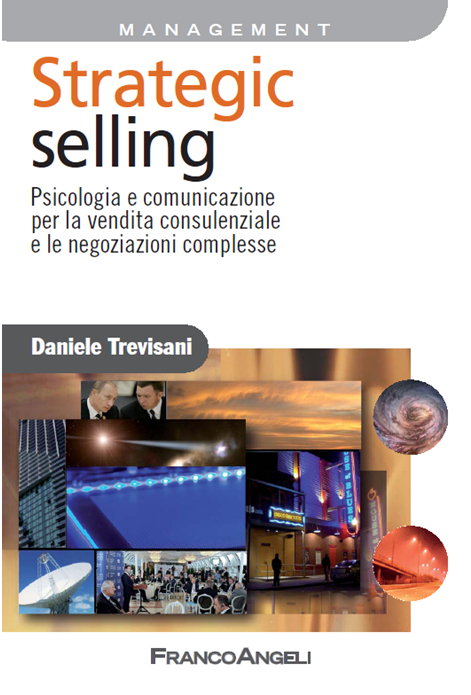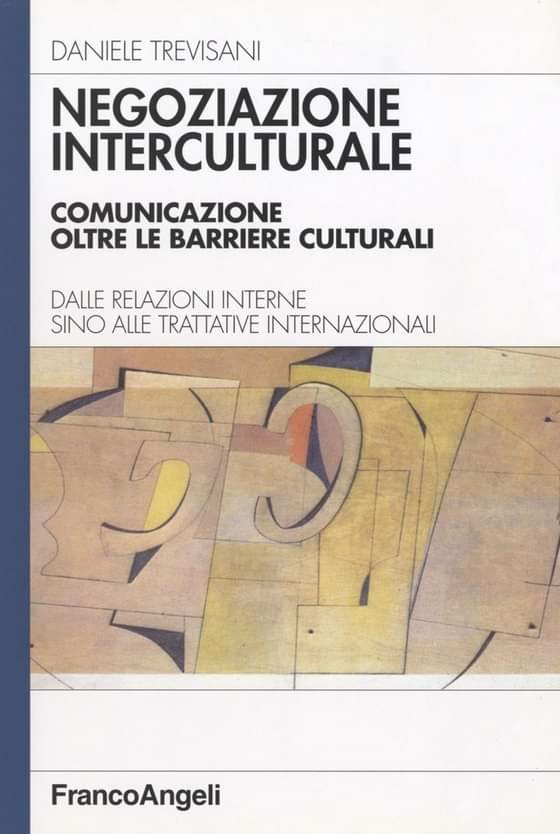© Article translated from the book “Strategic Selling: Psicologia e Comunicazione per la Vendita Consulenziale e le Negoziazioni Complesse” (Strategic Selling: Psychology and Communication for Consulting Sales and Complex Negotiations) copyright Dr. Daniele Trevisani Intercultural Negotiation Training and Coaching, published with the author’s permission. The Book’s rights are on sale and are available. If you are interested in publishing the book in English, or any other language, or seek Intercultural Negotiation Training, Coaching, Mentoring and Consulting, please feel free to contact the Website on Intercultural Negotiation
__________
In the following article I would like to introduce the concept of the “Get-Ready Mindset”, explaining the importance of an adequate preparation both on self-analysis and on the analysis of other people’s way of thinking and behaviours.
It is not easy explaining in a few words what the Get-Ready Mindset is, but I will try to do so by using a metaphor: it is the preparation work that boxers, karateka, or kickboxers do before facing an important match.
This preparation consists of studying the opponent’s moves, analysing the videos of his/her fights and any possible material concerning him/her, such as what fighting styles he/she may know, his/her masters, his/her preferences, his/her previous defeats , who defeated him/her and how, what are his/her winning strokes, with whom he/she trains, etc.. It includes studying his/her resume, his/her history and the way he/she moves, searching for his/her strengths and weaknesses.
After having analysed the “other”, it’s time to analyse ourselves:
- what are my strengths?
- What can I do to improve myself?
- Is improving a certain aspect of myself useful or useless?
- On what specific development should I focus for that meeting? And how do I convert all this into a training plan?
We then proceed with building specific combat strategies and techniques. We create a road map, test the progresses made and the state of preparation on the ring with sparring partners.
This training is related both to fundamental skills (strength, endurance, speed) and to specific techniques. No detail must be overlooked.
This preparation combines strategy with hard daily gym training, made up of sweat and fatigue, so as to automate the techniques that are going to be used in the match. The best schools do not disregard athletes’ mental training, but they work on focusing and relaxation techniques and on the search for the most profitable mental state, which keeps away the “background mental noises” allowing athletes to be at their best.
In fact, in every meeting, as I have been able to highlight in the intercultural negotiation field, it is important to know how to keep the background mental noises out of the arena, the retro-thoughts that can weaken us, making us lose tactical clarity of mind and situational awareness (Mental Noise Theory).
In companies, as well as in sports, one must not rely on destiny or on the hope of being lucky, but on preparation, because that is the only way to strengthen ourselves, to rise to the challenge and to be able to face it.
And again, a lot of sparring, simulation and training activities must be combined with the indispensable courage that facing challenges that can be lost takes.
Sales and negotiation in complex environments require specific trainable skills: strategic analysis and communication psychology. In other words, high-level skills. Nothing that can be stereotyped or memorized.
Just as the fighter prepares himself/herself in the gym, the negotiator can prepare himself/herself through role-playing and simulations. Just as the fighter analyses his/her opponent, mapping his/her strengths and weaknesses, companies can do the same to be ready for strategic meetings.
We will explore each of these topics in detail. Effective preparation for strategic sales and complex negotiations concerns some very important points:
- The inner will to adopt a consultative approach, with all its consequences: consultancy behaviours, an analytic attitude and a strong psychological and communicational training that can support one’s methods and actions;
- the self-knowledge: the knowledge of one’s strengths and weaknesses, combined with the full awareness of the value mix that a person, or a company, can create for customers or stakeholders, with whom they must deal;
- the knowledge of “others”: their vulnerabilities, their decision-making mechanisms, their balances and imbalances, their dissonances, the problems that can create a state of need or necessity in them, the drives and tensions capable of triggering them to purchase, while bringing us to the positive closing of a negotiation;
- the spaces, options and ways of relating that lead to success, the traps that can cause our failure, the pitfalls, the lines of action and the sense of the “journey”, that must be undertaken to reach the goal by building the right path, step by step.

© Article translated from the book “Strategic Selling: Psicologia e Comunicazione per la Vendita Consulenziale e le Negoziazioni Complesse” (Strategic Selling: Psychology and Communication for Consulting Sales and Complex Negotiations) copyright Dr. Daniele Trevisani Intercultural Negotiation Training and Coaching, published with the author’s permission. The Book’s rights are on sale and are available. If you are interested in publishing the book in English, or any other language, or seek Intercultural Negotiation Training, Coaching, Mentoring and Consulting, please feel free to contact the Website on Intercultural Negotiation
__________
For further information see:
- Studio Trevisani Academy’s Webstite For Business Training, Coaching and Mentoring, in Italian
- Dr. Daniele Trevisani’s Website in Italian
- Dr. Daniele Trevisani’s Website in English
- Comunicazioneaziendale.it – Italian website on Business Communication
- Medialab Research Cultural Association for Communication Research
- Dr. Daniele Trevisani Linkedin Profile in English
- Facebook Channel
- YouTube Channel
TAGS:
- ALM business method
- act like professionals
- active training
- achieving results
- awareness of one’s role in negotiation
- Best coach in intercultural communication in the world
- Best coach in intercultural facilitation in the world
- Best coach in intercultural negotiation in the world
- Best world consultant in intercultural communication
- Best world consultant in intercultural negotiation
- Best world expert in intercultural communication
- Best world expert in intercultural negotiation
- Best world trainer in intercultural communication
- Best world trainer in intercultural negotiation
- book on intercultural communication
- book on intercultural negotiation
- book on strategic selling
- breaking the barriers of incommunicability
- communication difficulties
- communication skills
- communication skills acquisition
- Communication techniques intercultural communication
- Communication techniques intercultural negotiation
- communication training
- conversational skills
- creative strategies
- cross-cultural communication
- cross-cultural misunderstandings
- cross-cultural adaptation
- cultural systems
- dialogue between companies
- different cultural approach
- different cultural context
- direct line of communication
- disagreements
- Effective intercultural negotiation techniques
- face-to-face communication
- fighting spirit
- front-line communication
- Get-Ready Mind Set
- helping relationships
- high-context cultures
- How cultural differences affect negotiations?
- How does culture influence negotiation?
- Human Potential
- intercultural communication
- intercultural communication book
- Intercultural communication books
- Intercultural Communication Coaching
- intercultural communication pdf
- Intercultural Communication Trainers
- Intercultural Communication Training
- Intercultural conversation management techniques
- Intercultural Negotiation
- Intercultural negotiation books
- Intercultural Negotiation Coach
- Intercultural Negotiation Coaching
- Intercultural Negotiation Communication
- Intercultural Negotiation Consultant
- Intercultural Negotiation Consulting
- Intercultural Negotiation Counselling
- intercultural negotiation definition
- Intercultural negotiation exercises
- Intercultural Negotiation in International Business
- Intercultural Negotiation Mentoring
- intercultural negotiation PDF
- Intercultural Negotiation Process
- Intercultural Negotiation Strategies
- Intercultural Negotiation Timing
- intercultural negotiation training
- intercultural training
- Intercultural Training Consultants
- know-how
- leadership
- low-context cultures
- negotiating rules
- negotiation preparation
- negotiator’s emotional awareness
- negotiator’s growth
- open communication
- physical and mental energies
- Strategic Selling
- strategic spirit
- strategic negotiations
- think like professionals
- transparent communication
- What are the 5 stages of negotiation?
- What is effective intercultural negotiation?
- What is intercultural negotiation?
- winning relationships
- working on attitudes
- working on skills
- World’s most famous expert in intercultural communication
- World’s most famous expert in intercultural negotiation
- inner will
- self-knowledge
- knowledge of others
- ways of relating





